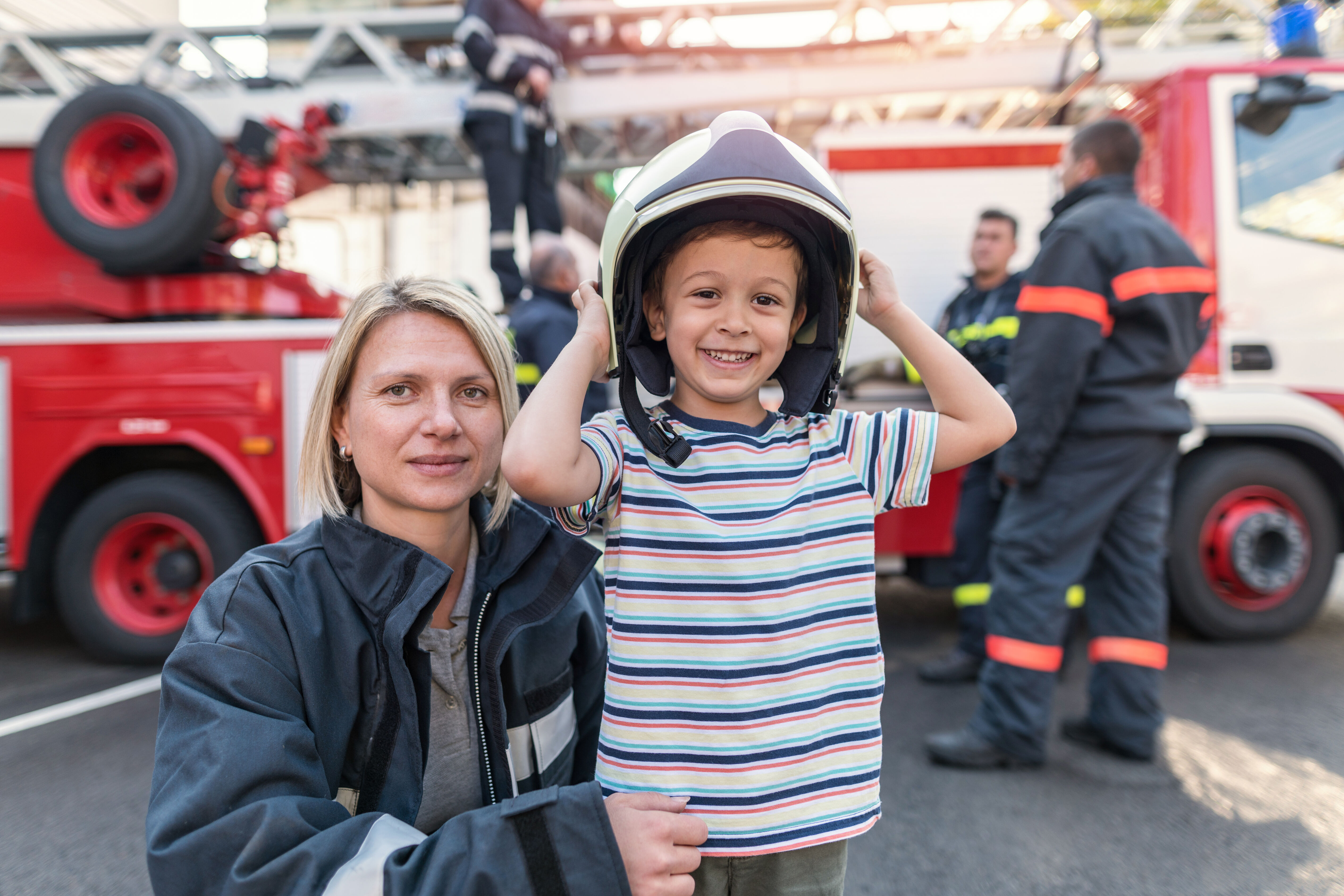Children of Public Safety Personnel (PSP): Understanding and Supporting Their Unique Needs
Children of public safety personnel often face emotional challenges like anxiety and uncertainty due to their parent’s demanding and unpredictable work, making open communication, consistent routines, and early support essential for their well-being.
As a PSP, your work plays a vital role in keeping communities safe. While you are engaged in the important work of serving others, your own family, particularly your children, may be navigating unique emotional challenges. Children of PSP often live with the stress of uncertainty, changes in routine, and concern for their parent’s safety. Understanding how your role impacts your child is the first step in helping them feel secure, supported, and resilient.
Your child may not have the words to explain it, but they might worry each time you leave for a shift. According to the literature, children of PSPs are more likely to experience generalized anxiety and separation anxiety, and fear of their parent being injured on duty. They may pick up on your stress after a difficult call or become anxious when you miss holidays, bedtime stories, or school events. Even if you are careful not to bring work home, children are perceptive and often absorb subtle changes in your mood or stress levels. Children may also be more prone to externalizing behaviors such as acting out or aggression if the effects of operational stress are not adequately managed at home.
Ways to Support Your Child
Create Space for Honest, Age-Appropriate Conversations
Talk with your child about your job in a way they can understand. Explain what you do, why you do it, and reassure them that you are trained and prepared. Validate their emotions. Let them know it is okay to feel scared, frustrated, or confused, and that you are there to listen. Check in with them when there are local events or issues arising in the news that may make them feel worried for your safety. Uncertainty often increases anxiety, sharing what is appropriate to share can reduce rumination and worrying.
Prioritize Consistency Where You Can
Your schedule may be unpredictable, but children thrive on routine. Build in regular touchpoints like bedtime video calls, breakfast together after night shifts, or weekend rituals. These small routines create emotional stability even when your schedule fluctuates. This helps to foster healthy attachment and builds trust. Take care of yourself to minimize the effects of exposure to trauma and fatigue so that you can show up emotionally for your child.
Use Support Services Early
Consider connecting with a family counselor who understands first responder culture. Many agencies also offer employee assistance programs (EAPs), peer support, or chaplaincy services that include family outreach. Parental coping is known to strongly influence child health outcomes. Parents who seek support and model heathy coping mechanisms create a more stable home environment. Remember that no parent is perfect, and it is important to reach out for help. Counseling can be beneficial for children of PSPsas it offers a safe, accepting, and non-judgemental space where they can discuss what they are feeling. Counselors can help children build coping skills, decrease anxiety, and identify and enhance personal strengths.
Tips and Considerations
Be mindful of how you decompress at home—your children notice more than you think.
Share how you are feeling if you are reacting to a difficult day at work e.g. “I am sad/angry today because of a hard day at work. But we can do something fun like going to the park later to make things better.” Communicate to the child that it is not their fault that you are feeling down/angry/stressed, etc. Be honest with them about your emotions and try not to suppress or avoid how you are feeling as children will likely interpret defensiveness, yelling, irritability, etc. as their fault if there is no explanation.
Pay attention and tune in to the needs of your child. Listen reflectively, acknowledge what is valid and be understanding of their experience. Remain calm without judgement and observe how your child is feeling and reacting. Watch for subtle signs of stress in your child, such as irritability, isolation, physical complaints, or changes in school performance.
Resources
Warrior Kids: Building Resilience in Youth from Families of Trauma-Exposed Professionals
An evidence-informed camp and virtual program that empowers children and youth to thrive despite the unique challenges posed by parents working as trauma-exposed professionals. The Warrior Kids Camp is a two-day immersive experience designed for children aged 8–16 whose parent is a Veteran or First Responder living with an Operational Stress Injury (OSI). Grounded in trauma-informed care, this camp empowers kids to build resilience, nurture self-confidence, and gain tools to thrive in the face of challenges.
Kids Help Phone
Canada’s only 24/7 e-mental health service offering free, confidential support to young people available at: www.kidshelpphone.ca
Children’s Materials
A Hero Lives in My Family: A Story for Kids of First Responders, by Dr. Susan Hunt (2015)
The Wolf was Not Sleeping, by Avril McDonald and Tatiana Minina (2020). There is a description on how to use the book and a video of the author reading it at: https://firefighters.org.nz/membership-support/the-wolf-was-not-sleeping
References
Figley, C. R. (1995). Compassion Fatigue: Coping with Secondary Traumatic Stress Disorder in Those Who Treat the Traumatized. Brunner/Mazel.
Gilmartin, K. M. (2002). Emotional Survival for Law Enforcement: A Guide for Officers and Their Families. E-S Press.
Regehr, C., & Bober, T. (2005). In the Line of Fire: Trauma in the Emergency Services. Oxford University Press.
Anderson, M. K., Kaufman, K. R., & Walters, T. L. (2020). Children of First Responders: Psychological Impact and Clinical Considerations. Journal of Child and Adolescent Trauma.
Miller, L. (2007). Police families: Stresses, syndromes, and solutions. The American Journal of Family Therapy, 35(1), 21–40.
.png)
.png)
.png)
.png)
.png)
.png)








.jfif)
